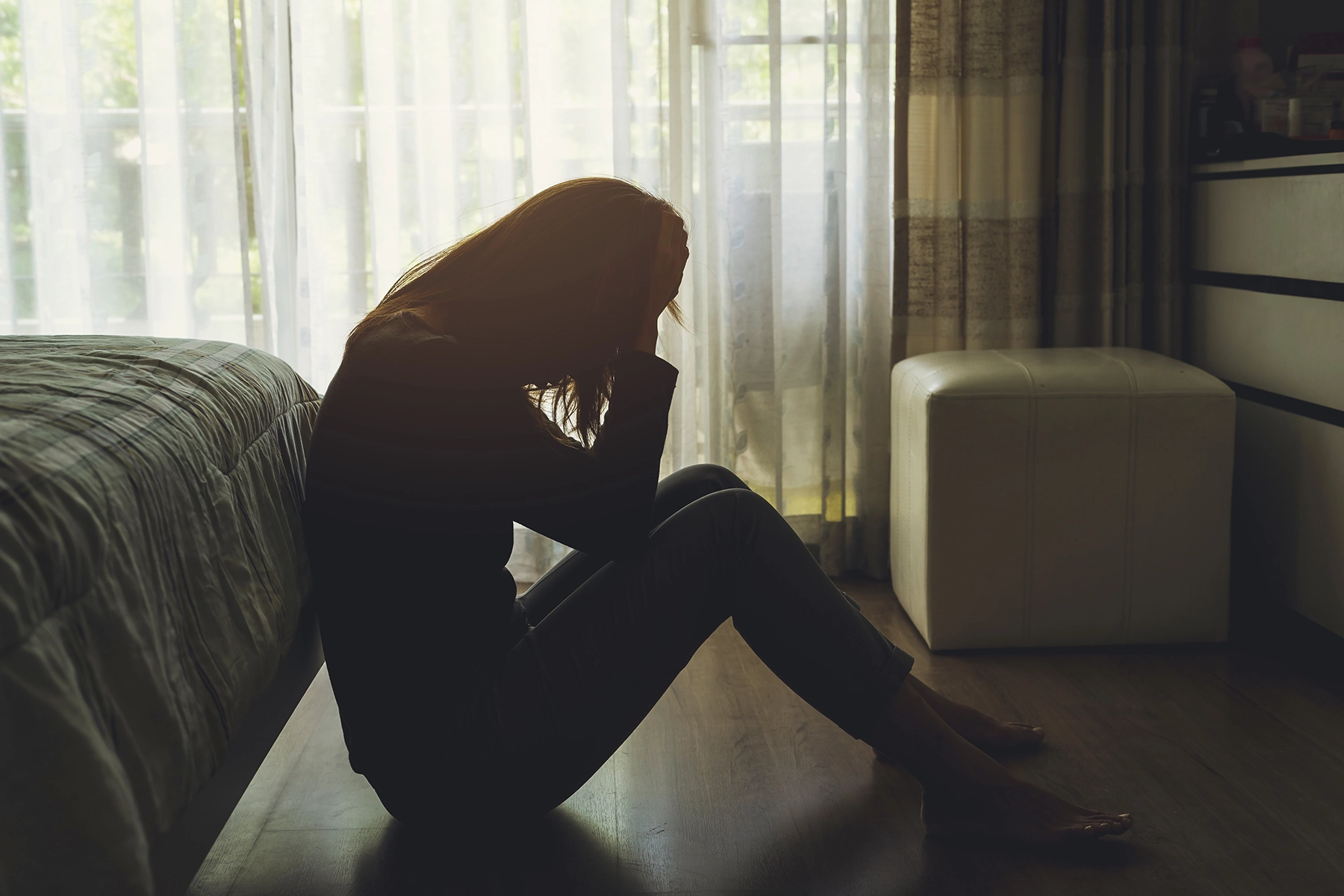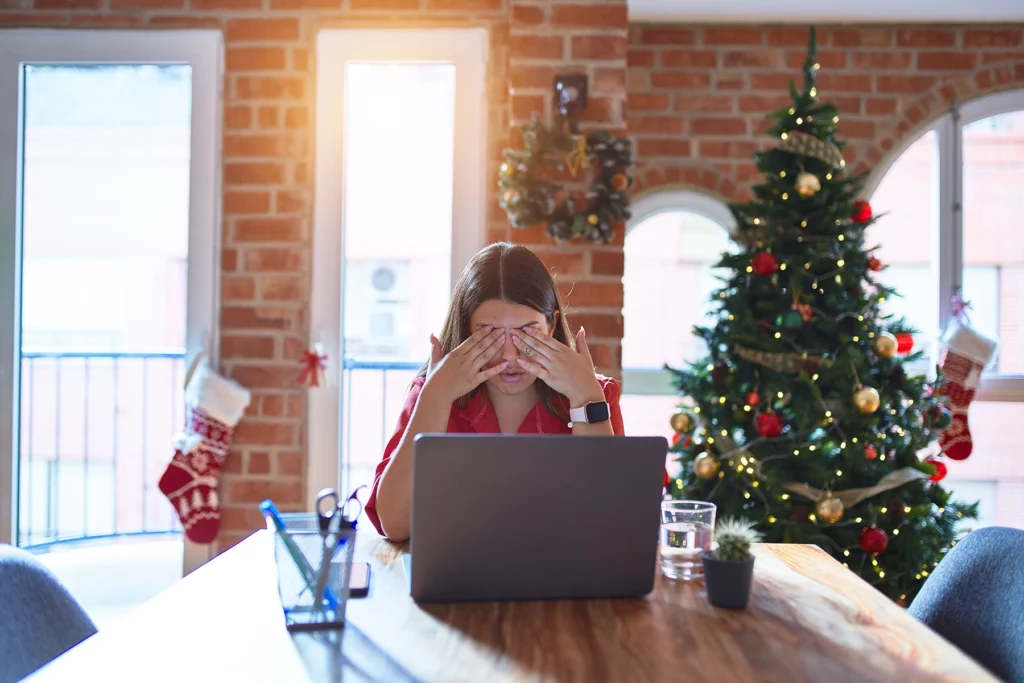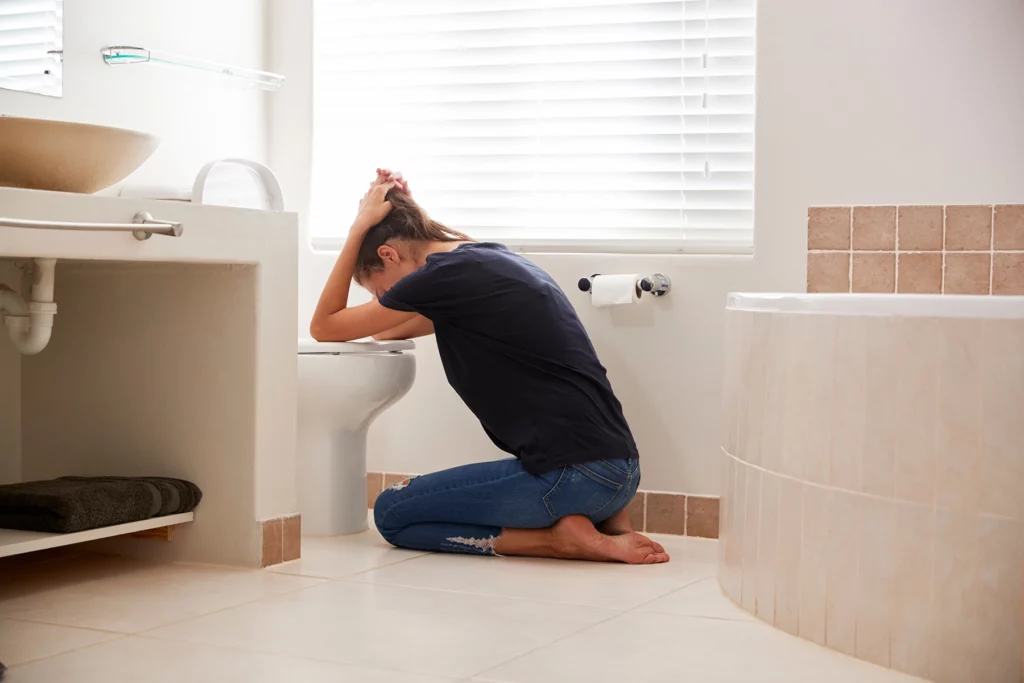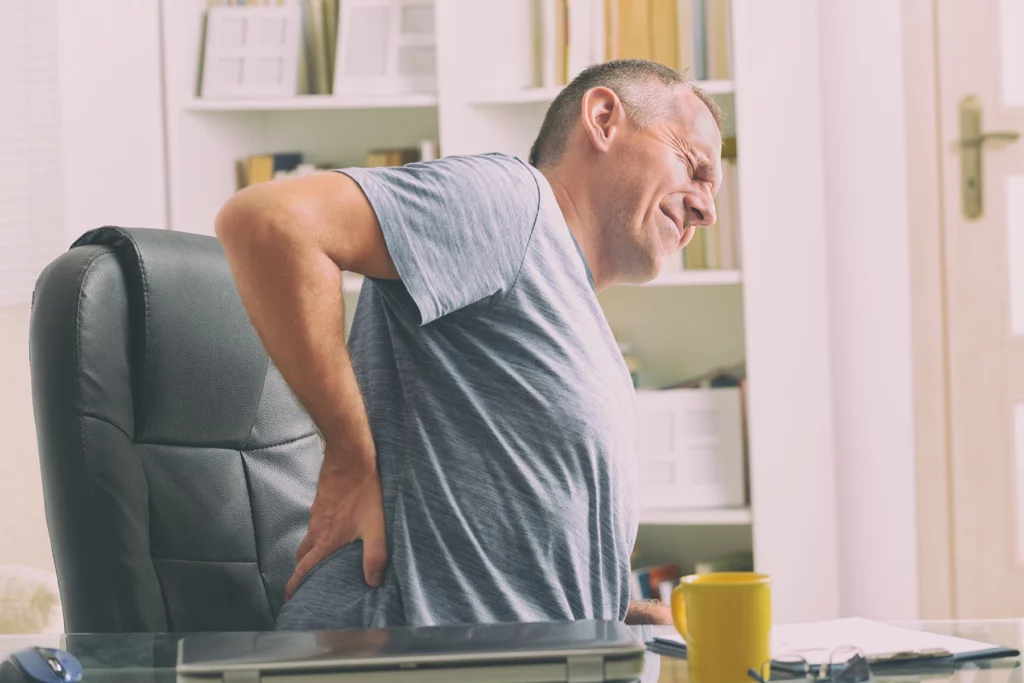Let’s Get Real about Anxiety and Depression
I saw a person on Facebook this week talk about how for her, depression is something that seeps in. She said that there will be a small bit, and it’s no big deal. Then a little bit more comes in, and a little more. And it all piles up so insidiously that she doesn’t notice it until it is burying her.
For others, depression and anxiety change day by day. And for some people, it can come on hard and fast, seemingly without cause, and then can disappear just as inexplicably. Then there are those for whom it comes on, sets up camp, and stays for long periods of time. Others experience mental health symptoms as a result of chronic pain.
The point is we can all experience it differently, and yet we are all in it together. Whether it’s post stroke depression, bipolar disorder, major depression, pain related depression, or other mood disorders, mental health issues can be a burden for many adults. In fact, nearly 44 million American adults experience mental health issues each year.
My History with Learning to Treat Anxiety and Depression Symptoms
Some of you know that I have a long and intimate history with anxiety. And with anxiety usually comes some amount of depression, just like with depression often comes some amount of anxiety. They are tangled and related symptoms, and both can lead to feeling like there is no exit. This cycle affects the autonomic nervous system, the sympathetic nervous system, and the body’s nervous system overall. There is more than one treatment method that might work, though acupuncture for mental health has been proven to help patients who are and are not on medications and other traditional therapies for mental health treatment. Fortunately, this means that there is an effective alternative therapy for some patients through traditional Chinese medicine.
So many of us still feel a terrible stigma attached to mental health that would not be present if we had a physical health issue. We feel like depression and anxiety are mental failings rather than a disease. And maybe if we follow the right diet, exercise enough, meditate more, sleep better, etc etc, we’ll be able to get rid of it once and for all.
But it often doesn’t work that way. And then we just feel more depressed and anxious because every time it shows up, we think, “You again?! I thought I already got rid of you!” It’s not a great feeling, and it often means picking up treatment we left behind the last time we started feeling better.
That is when the hopelessness sets in.
These mountains that you are carrying, you were only supposed to climb.
Najwa Zebian
Situational Anxiety or Depression? Or not?
Most people will have at least a fleeting interaction with anxiety or depression. The loss of a loved one or relationship, the loss of a job, or an unexpected negative life event — these can all trigger normal feelings of loss, sadness, despair, and anxiety. The people dealing with this type of depression often slowly lift away from negative symptoms and stress as time passes and may never return again. And while this type of depression is situational, it may still benefit from treatment, as its severity may vary.
But for some of us, having depression and/or anxiety is as much a part of who we are as having blue eyes or being left-handed. It is always going to be something that we have to be aware of. This means that dealing with it is crucial to our well being. We are individuals living in a body that experiences depression, whether or not it’s accompanied by symptoms like pain and migraine.
It may pop up from time to time throughout our lives, or there may be long periods of time that feel insurmountable.
Regardless, the high blood pressure, the stress of treatment planning, the build up of lymphatic fluids, and the other requirements of dealing with mental health treatment can really add up, especiall when we’re already struggling with mental health, chronic pain, and more.
Treating Anxiety and Depression Naturally
So how do you handle it? Not by hiding it. I know this is your instinct. I’ve been there. Isolating myself because I don’t want people to know what a failure/loser/mess I am. The self-talk gets really dark really fast.
So you hibernate. You don’t want to burden anyone around you, and they won’t understand anyway, right?
The way you deal with it is by building a toolbox. The tools will vary slightly for all of you, and you often find them by trial and error. They may include a mental health prescribing doctor, they may not. Whatever you decide to do, a systematic review of your symptoms is in order, along with a consideration of treatment.
Log Your Symptoms
One of the most helpful things you can do to track your positive results in any treatment program is to track your symptoms. Patients who see the most benefit, research studies have shown, often track their pain levels and other symptoms so their doctors and alternative treatment professionals can help them measure their progress or suggest a ore effective treatments. This type of meta analysis also helps more logical thinkers connect with their body.
What should you log? Consider things like:
- Increase or decrease in symptoms such as migraine
- Greater reduction in pain generally as well as specific prevalence of chronic pain flare ups
- Intensity of depression and anxiety
- Effectiveness of whether acupuncture helps, and other treatments
- Mental health benefits of meditation, positive thinking, and manifestation
- Positive effects of drugs, acupuncture treatment, people in your life, or any other stimulae that affects your mental health
- Poor sleep and eating habits
- Whether you sleep better after a treatment plan that includes acupuncture
- Express the many benefits of treatments that are working by drawing a picture; you don’t have to limit yourself to writing
After about eight weeks, you’ll want to look for patterns in your post acupuncture treatment symptoms, your pain or chronic pain levels, and your energy flow.
Pregnant women should note that bodily changes and hormones can also affect their mental health symptoms. Through assessment of chronic pain changes and the effectiveness of treatment, the benefits of finding the right mental health treatment for you will come as a relief once it happens.
It’s all about tracking severity of any illness, learning how to treat the symptoms, the benefit of each treatment, and whether it reduces your stress level. Fortunately, researchers found that traditional Chinese medicine, or TCM, can help with that.
Here is what I keep in my toolbox for treating mental health issues:
1. Acupuncture.
Acupuncture treatments completely changed my relationship with my anxiety disorder, and it is the first thing I go back to if it starts feeling Big again. It can engage your natural endorphins and can calm your fight-or-flight system. It can help balance hormones, it can help you sleep, OR it can help restore your energy. And it works as an adjunct with pretty much any other tools you might use.
Acupuncture remains one of the best starting points for most people struggling with chronic pain and mental health issues. It has great mental health benefits for those suffering from pain in particular, because once you can treat or alleviate the chronic pain, the mental health issues tend to ease up.
2. Therapy.
I know, I know — it’s hard to find a good therapist. But a good therapist can be incredibly helpful when you need to unload. You are paying them, so you don’t feel like you are a burden when you let loose with the thoughts in your head.
They can help you work out a plan, and if they are able to prescribe medications (i.e. a psychiatrist), they are far more equipped to get you the right meds than are regular primary care physicians.
Most people can still undergo acupuncture treatments while they are seeking professional help with their mental health issues through a therapist. Plus, acupuncture for mental health is more widely seen as a way to aid in the treatment of depressive symptoms and major depressive disorder. Ask your therapist or doctor, but acupuncture treatments and acupuncture for mental health are generally seen as positive ways to relieve depression symptoms.
3. Meditation.
I know it’s hard to be alone with the thoughts in your head during these times, so meditation sounds awful. That’s why I love guided meditation. They help quiet the negative self-talk and shift your perspective without you having to do it all yourself.
There are tons of free ones on YouTube, so look through them until you find at least one that resonates. It doesn’t have to be more than about 10 minutes a day.
Chronic pain patients may struggle a bit with this one, because some types of meditation make it easy to focus on the pain. However, guided meditation can take you to another place in your mind’s eye, away from the pain and depressive symptoms that follow. If you meditate following acupuncture for mental health, you may find it’s easier to get into a meditative state due to the energy flow shift and reduction of chronic pain symptoms. Your body’s nervous system will be primed for relaxation.
4. Sleep.
I know my anxiety is made way worse by inadequate sleep. If you’re depressed, you may think, “but I already sleep too much.” But often, people who are depressed are getting poor quality sleep (which is why they don’t feel rested).
Acupuncture can help with this. So can meditation. So can certain herbal supplements (ask a professional before you just pick something off the shelf). Sleep is almost always an advisable treatment method for mental health issues and chronic pain. And just like with meditation, acupuncture treatments are complementary to getting a good night’s rest.
5. Diet.
Eating a whole foods diet with little sugar can help with mental health issues. You have more neurotransmitters in your gut than you do in your brain. Researchers are paying more attention to this connection and have already seen that digestive issues are often connected to depression and anxiety.
This can become a vicious cycle: digestive issues lead to depression/anxiety disorders, which then leads to more digestive problems. Sugar is especially inflammatory and can lead to heightened feelings of despair and anger/irritability. Therefore, reducing it can calm some mental health issues.
6. Exercise.
You probably don’t feel like it, but mustering up the will to move your body will likely lead to a better emotional state, improving your mental health.
Some studies have found that regular exercise actually works as well as anti-depressant medication to treat depression. That’s incredible! Find a buddy if you need to, pay for a class in advance — find the motivation you need to get your butt moving, even if it just means taking a 20-minute stroll outside.
In the end, there are lots of tools that can be in your toolbox. You might include prayer/religion, family time, medication, essential oils, a support group, and writing/art. The point is that there is so much hope and so much help out there.
I know it is hard to motivate yourself to reach for a lifeline, but you will not regret doing so. Mostly, I want you to know that you are not alone. I understand, and I want to help.
*If you or someone you love is struggling with anxiety or depression, have them request a free initial consultation with me to find out more about how I can help. Or just head on over to the scheduling page to schedule your own free consultation or new patient appointment. Know that many insurances cover this as well, and we are happy to navigate that with you. There are many benefits to Chinese medicine, including acupuncture, when it comes to treating mental health issues.
Portland Acupuncture Treatment for Major Depressive Disorder
Avoid sham acupuncture treatments. I’m qualified and certified, and I understand the many benefits of acupuncture. I won’t discourage you from other treatment options — instead, we’ll figure out how to ensure acupuncture works with your existing major depressive disorder treatment.
Alternative Treatment for Anxiety and Depressive Symptoms
Depression and anxiety can really cause problems in the body. Researchers found that patients experiencing depression and anxiety were also more likely to have stress and pain in their body. Research also indicates that there are many health benefits when you’re able to treat depression and anxiety with acupuncture.
I have personally experienced these health benefits: a reduction in stress, relief from constant anxiety, less pain, and less general stress in my body. I’m not the only one — many patients report lower pain, with or without medication, when they’re undergoing acupuncture treatment.
How Natural Medicine Can Help with Your Mood Disorders
Natural medicine can aid in symptom relief and is a great complement to traditional therapy many patients undergo You may experience health benefits immediately in your body, such as migraine relief, pain reduction, and more.
Acupuncture helps with mood disorders, anxiety, and depression, and I know because it’s worked for me. If you’re ready to explore an effective alternative treatment and potentially reduce your blood pressure, it’s time to give acupuncture a try.
Get in Touch with a Certified Practitioner to get Started with a Treatment Plan Tailored to You
If you’re one of many people dealing with pain in your body, remember that research indicates you can receive relief and other health benefits from acupuncture treatment. Reduce the symptoms of depression, anxiety, and bipolar disorder.
Avoid sham acupuncture “specialists.” Stick with someone who has experience — someone who has been there. I’ve had depression in my body. I know what that can do to a body: mentally, physically, and energetically. Your body deserves better.
Learn more about our Comprehensive Approach to Treating Mental Illness
I’ll help you create a treatment plan that works with your doctor and therapist. i do treat pregnant women experiencing mental illness as well. Depression is difficult. Depression can return. Depression has a stigma attached to it. And I know that depression requires a comprehensive approach to treatment. We’ll add acupuncture to your treatment plan to help with depression.
Make this choice for your health. Make this choice to get relief. And if you experience migraine issues, let’s get rid of them as we use acupuncture to alleviate the symptoms of depression.







